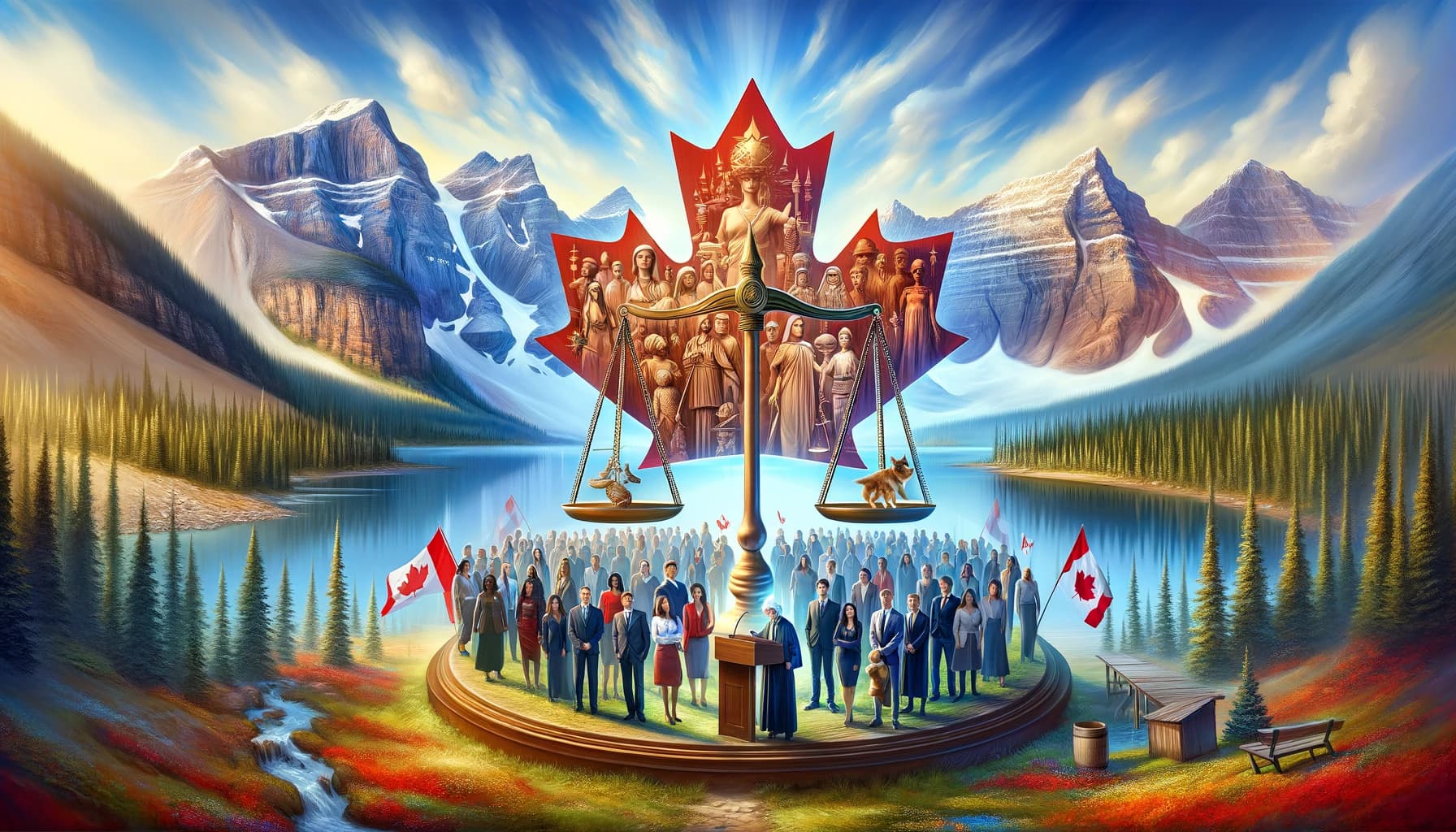
Canadian Law: A Pillar of Fairness and Opportunity
Canada is known for its robust legal framework, which provides a favorable business environment and strong protection of rights. Thanks to its favorable business climate, Canada is one of the five best countries for doing business, as emphasized by the annual DOING JONES survey. This article delves into the intricacies of Canadian law, covering company incorporation, government structure, and the comprehensive rights guaranteed by the Canadian Charter of Rights and Freedoms.
Exploring the Facets of Canadian Law: A Comprehensive Guide
Canada’s legal framework is a complex tapestry that weaves together the rights of individuals, the responsibilities of corporations, and the overarching principles of justice and equality. This guide delves deep into the nuances of Canadian law, starting with the essential process of company registration, exploring the unique state structure of this vast country, and highlighting the rights enshrined in the Canadian Charter of Rights and Freedoms. Whether you are a local entrepreneur, a foreign investor, or simply seeking to understand Canadian law, this article aims to shed light on the intricacies of navigating the Canadian legal system.
Company Registration in Canada: A Gateway to the North American Market
Canada is one of the most attractive countries in the world for doing business, and it is consistently ranked among the top five countries for business climate. The process of registering a company in Canada is a testament to the country’s open and favorable approach to entrepreneurship. Structured to facilitate market entry, it welcomes both local and international companies, offering a stable and prosperous gateway to the North American market. This section details the prerequisites, steps, and benefits of incorporating a company in Canada, providing a roadmap for succeeding in this dynamic economy.
The Federation of Canada: Understanding the State Structure
Canada’s government is based on a federal system, a union consisting of ten provinces and three territories. Each federal entity has its own distinctive legal system, reflecting the country’s diverse cultural and linguistic heritage. In particular, Quebec is distinguished by its civil law system, which contrasts with the common law system that prevails in the rest of the country. This federal model promotes a balance of power, ensuring that local needs are met while maintaining a unified national policy. This section explores the implications of this structure for both business and citizens.
Expanding Business Horizons: Company Registration in Canada
Incorporating a company in Canada opens up great opportunities for business owners. The process is simplified to support both local and international entrepreneurs seeking to capitalize on Canada’s economic potential. Focusing on a fair and favorable business environment, Canada’s policies are aimed at encouraging innovation and growth.
To gain a deeper understanding of business structuring, you can learn object-oriented programming in PHP as a basis for developing robust business applications.
The Backbone of Canada: Federal State Structure
Canada’s federation comprises 10 provinces and 3 territories, each with its unique laws and governance, excluding those domains regulated by the federal government. This structure promotes a balance of power, ensuring local needs are met while maintaining cohesive national policies.
List of Canadian Provinces and Territories
- Alberta
- British Columbia
- Manitoba
- New Brunswick
- Newfoundland and Labrador
- Nova Scotia
- Ontario
- Prince Edward Island
- Quebec
- Saskatchewan
- Northwest Territories
- Nunavut
- Yukon
Protection under the Canadian Charter of Rights and Freedoms
The Canadian Charter of Rights and Freedoms stands as a testament to Canada’s commitment to equality, freedom, and justice for all. It enshrines fundamental freedoms, democratic rights, and equality rights, among others, ensuring every individual’s protection under the law.
Key Rights Protected
| Right | Description |
| Equality Rights | Equal protection and benefit of the law without discrimination. |
| Democratic Rights | The right to participate in democratic processes. |
| Freedom of Expression | The freedom to express opinions and ideas without censorship or restraint. |
Structuring a project or package in programming, such as with Python, can be likened to understanding and navigating through Canada’s legal structure. For those interested, a guide on structuring a Python package offers valuable insights.
Frequently Asked Questions
Can I open my own business in Canada as a non-resident?
Yes, non-residents can open a business in Canada, though certain restrictions and additional requirements may apply.
What are the benefits of registering a company in Canada?
Registering a company in Canada offers numerous benefits, including access to a stable economy, a favorable business environment, and a straightforward legal process.
How does the Canadian Charter of Rights and Freedoms protect individual rights?
The Charter protects fundamental freedoms, legal rights, and equality rights for all Canadians, ensuring everyone is equal under the law.